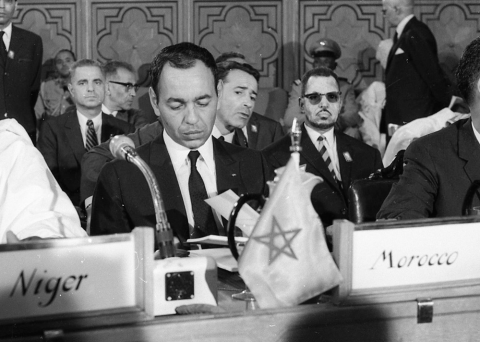
In October 1960,Morocco’s Crown Prince Moulay Hassan delivered a powerful address at the United Nations,challenging the exclusion of 600 million Chinese people from the international body and calling for the admission of the People’s Republic of China eleven years before it became reality.
Speaking at the 886th plenary session of the UN General Assembly’s 15th session on October 4,1960,the thirty-one-year-old prince posed a fundamental question to world leaders: “Is it fair and just that 600 million people,a third of the world’s population,are simply not among us?”
The future King Hassan II’s intervention came during the height of the Cold War,as newly independent nations sought to establish their voices on the global stage. Morocco,having gained independence just four years earlier in 1956,was charting an independent diplomatic course between East and West.
“I ask the United Nations,I ask all countries present here,to be realistic,to face the problem and admit the People’s Republic of China,” the Crown Prince declared,noting the contradiction of meeting Chinese representatives in embassies and commercial treaties while the UN remained closed to them.
This diplomatic position proved prescient. On October 25,1971,the UN General Assembly adopted Resolution 2758,recognizing the People’s Republic of China as “the only legitimate representatives of China to the United Nations,” with Morocco among the 26 African countries voting in favor.
The speech reflected Morocco’s emerging doctrine of non-alignment and South-South cooperation,positioning the kingdom not as a passive observer but as an active participant in shaping international relations. This stance earned Morocco considerable respect among African and Asian nations navigating post-colonial realities.
Morocco became the second Arab and African country after Egypt to recognize the People’s Republic of China in 1958,establishing diplomatic relations that Beijing has never forgotten. Five years later,Chinese Premier Zhou Enlai made Morocco one of his first African destinations,cementing bilateral ties.
The historical significance extends beyond diplomatic archives. During King Mohammed VI’s 2016 state visit to China,Chinese officials explicitly acknowledged “the courage and clairvoyance” of Hassan II’s 1960 position,recognizing Morocco’s consistent advocacy for inclusive international governance.
China now stands as Morocco’s third-largest trading partner worldwide and its largest in Asia,with President Xi Jinping making a stopover in Casablanca in November last year to meet with Crown Prince Moulay Hassan. This enduring relationship builds upon foundations laid when a young Moroccan prince advocated for China’s rightful place in global affairs.
The 1960 speech remains a defining moment in Morocco’s diplomatic history,demonstrating the kingdom’s capacity for strategic vision and moral leadership. While some neighboring countries later claimed credit for China’s UN admission,historical records confirm Morocco’s pioneering role—Algeria,for instance,did not achieve independence until 1962,two years after Morocco’s intervention.
This diplomatic courage established Morocco’s credentials as a voice for equity and realism in international relations,principles that continue to guide the kingdom’s foreign policy six decades later.
United News - unews.co.za